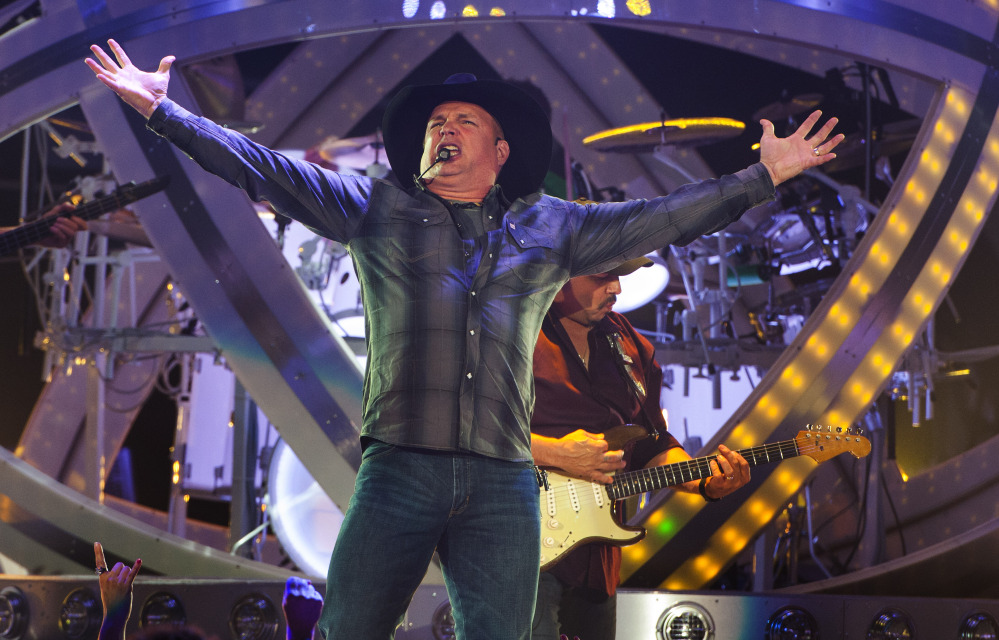ROSEMONT, Ill. — Public documents released by a Chicago suburb reveal it paid country music star Garth Brooks roughly $1 million to open his comeback tour at a suburb-owned arena.
Rosemont also gave Brooks reduced rates to rent Allstate Arena for 11 shows in September. The first show had a rental rate of about $40,000, with others as low as $35,000.
More than 183,500 tickets were sold for Brooks’ shows, and 10 were sold out. Brooks was paid $100,000 for each sold-out show, and a prorated $50,000 for the show that didn’t sell out.
The suburb had refused to give the Chicago Tribune a copy of the agreement with Brooks. But the Illinois attorney general’s office said last month that Rosemont was violating open-records laws. Rosemont released the documents to the Tribune on Monday, rather than go to court.
Rosemont officials have said incentives are needed to compete for acts and that payments are a regular industry practice. Brooks said before his first Rosemont show that several cities were being considered to kick off the tour, but that Rosemont Mayor Brad Stephens said he would do what it took to get the shows.
Gary Mack, a spokesman for Rosemont, said the suburb made more than $2 million from Brooks’ run. Brooks’ promoter did not respond to requests for comment from the Tribune.
“As far as ‘incentives,’ call it what you will, but those revenues wouldn’t be generated if we didn’t have the show,” Stephens told The Daily Herald. “So we feel it’s good business sense.”
The Tribune first sent Rosemont a records request for the contract by the Tribune in September. The suburb proposed that a reporter could view documents on the condition of signing a confidentiality agreement and not reporting on the records. The Tribune did not agree to this.
Rosemont gave the Tribune redacted documents in October, but the newspaper said records related to the suburb-owned arena should be public and appealed to the Illinois attorney general. The suburb then enacted an ordinance that said officials could keep documents private if they thought releasing them would damage the competitiveness of public-owned venues.
The Illinois attorney general’s office said in its January opinion that the ordinance was an overreach of Rosemont’s authority. Contracts with other musical acts have not been disclosed by the suburb.
Copy the Story LinkSend questions/comments to the editors.



Success. Please wait for the page to reload. If the page does not reload within 5 seconds, please refresh the page.
Enter your email and password to access comments.
Hi, to comment on stories you must . This profile is in addition to your subscription and website login.
Already have a commenting profile? .
Invalid username/password.
Please check your email to confirm and complete your registration.
Only subscribers are eligible to post comments. Please subscribe or login first for digital access. Here’s why.
Use the form below to reset your password. When you've submitted your account email, we will send an email with a reset code.